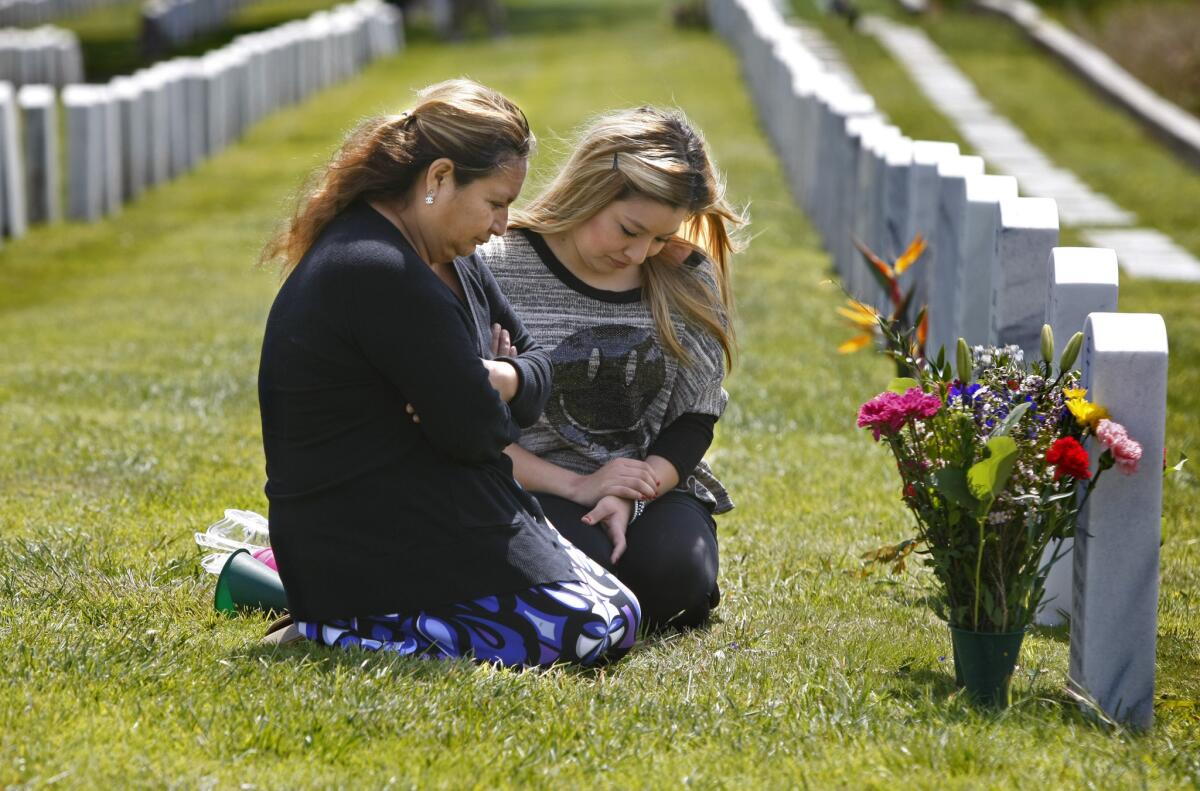Defense chief reviewing Medal of Honor case for Marine killed in Iraq

The U.S. Secretary of Defense is “familiarizing himself” with the history of one of the most controversial actions from the war in Iraq: the decision not to award the Medal of Honor to a Marine from San Diego killed in Fallouja in 2004.
While not a full review of the case of Sgt. Rafael Peralta, Defense Secretary Chuck Hagel is looking at information given to him recently by Rep. Duncan Hunter (R-Alpine), a Defense official said Tuesday.
Hunter, who served in Iraq as a Marine officer, has long campaigned to have Peralta awarded the Medal of Honor.
Marines who were with Peralta during the bloody house-to-house fighting in Fallouja in November 2004 insist that, although down and mortally wounded, Peralta reached out to smother an enemy grenade with his body, saving their lives.
But medical analysis concluded that Peralta was already clinically dead from friendly fire and that his bodily actions were involuntary movements.
On that basis, Hagel’s two predecessors, Leon Panetta and Robert Gates, turned down the Marine Corps nomination of Peralta for the Medal of Honor, instead awarding him the Navy Cross.
But Hunter is hopeful that new evidence and Hagel’s combat experience in Vietnam will make a difference.
“By reviewing this case, you remain capable of overturning a severe injustice that has wrongly denied Peralta the highest award for combat valor — and I am confident that your experience in the Army offers a perspective that stands to make a difference,” Hunter wrote Monday to Hagel.
Hunter has provided Hagel with statements from a Navy corpsman and pictures of Peralta’s rifle and body armor.
He asserts that the corpsman’s statement about injuries on Peralta’s body and pictures of the damage on the rifle and body armor prove that the grenade exploded beneath or extremely close to Peralta’s body – not several feet away as the medical analysts have said.
The Peralta case has become a lingering source of frustration, even anger, among Marines. Boot camp recruits are lectured about Peralta’s bravery.
A Marine general familiar with the case noted recently that he has “been dismayed by the obstacles thrown in the path to gain him the recognition he so justly deserves…. There are children today who would not be alive if their fathers had not been saved by Sgt. Peralta.”
In his letter to Hunter a year ago, then-Defense Secretary Panetta noted Peralta’s “courageous sacrifice and faithful service” but said that there can be “no margin of doubt or possibility of error” in awarding the Medal of Honor.
Peralta, an immigrant from Mexico, enlisted on the day he received his green card. He was 25 when he died.
In 2010, Ricardo Peralta enlisted in the Marine Corps to keep a promise he made at his brother’s funeral. He later deployed to Afghanistan.
Twitter: @LATsandiego
tony.perry@latimes.com
More to Read
Start your day right
Sign up for Essential California for news, features and recommendations from the L.A. Times and beyond in your inbox six days a week.
You may occasionally receive promotional content from the Los Angeles Times.






